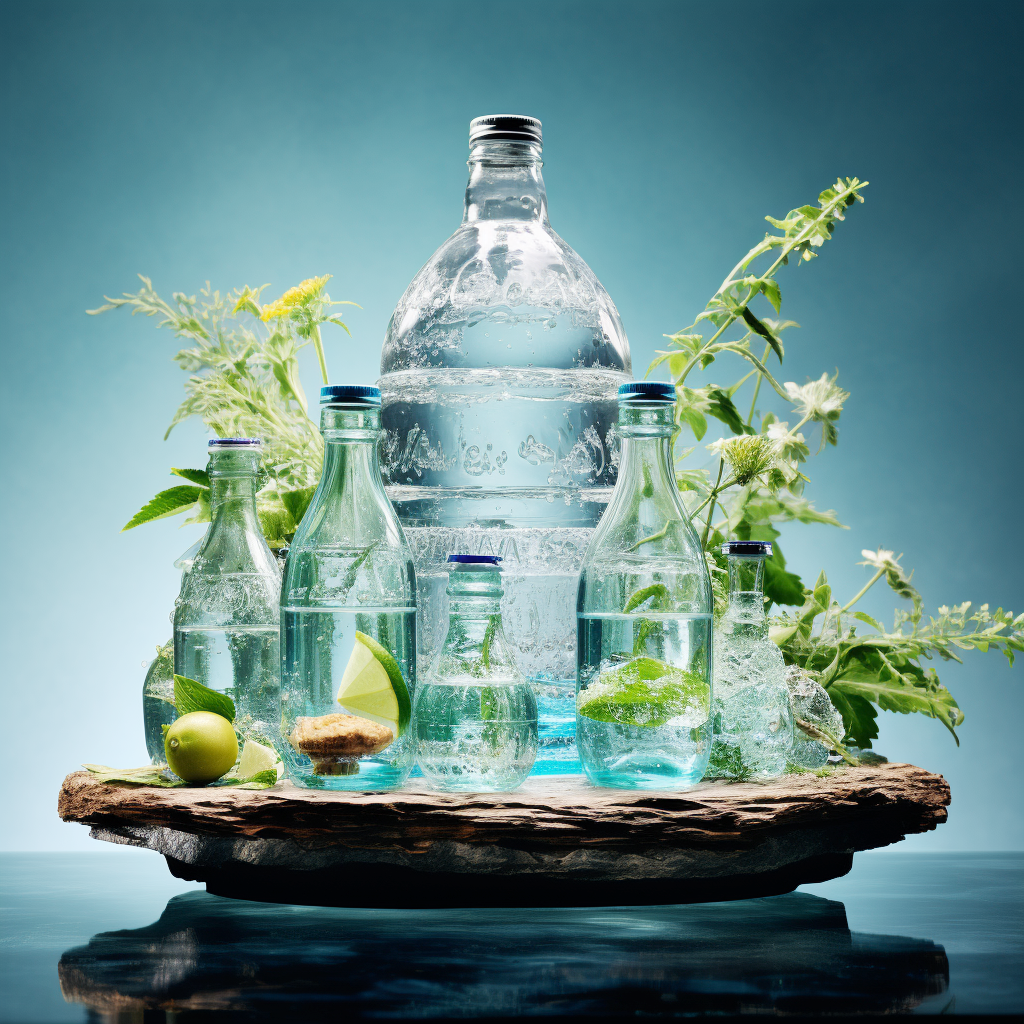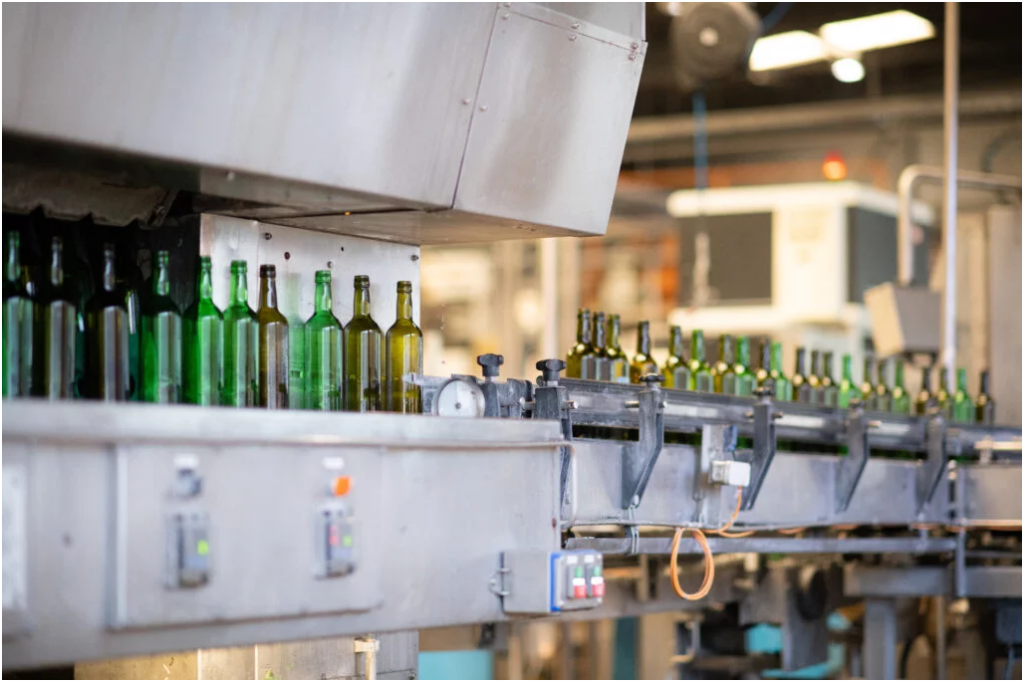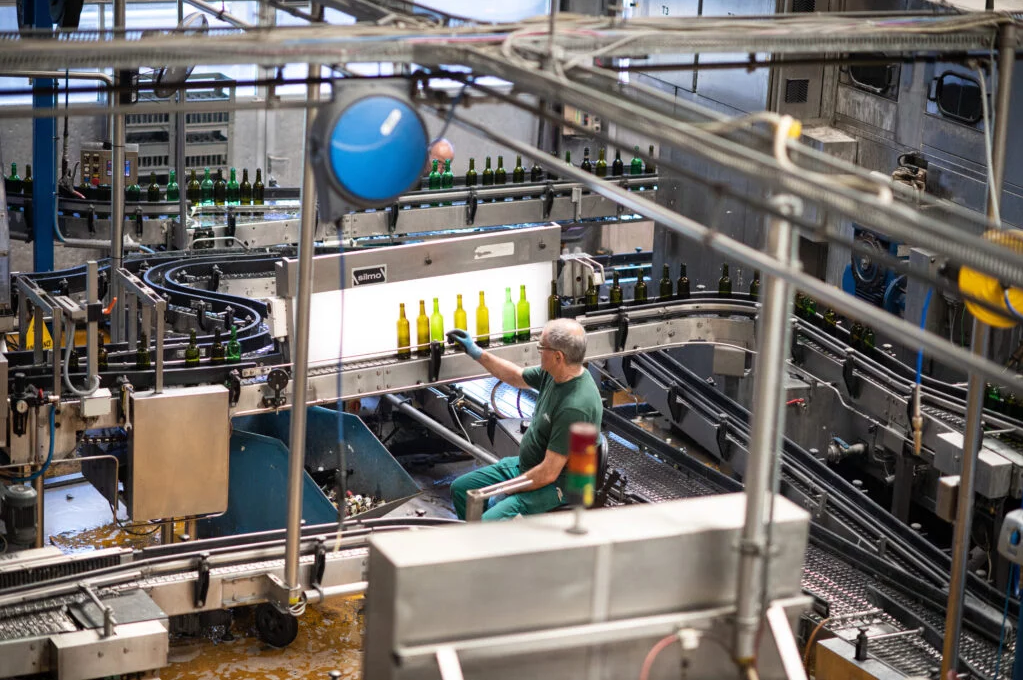Sustainability and environmental awareness are currently very much discussed in the glass industry. We at Univerre are also very focused on sustainability and asked ourselves what our partners are doing to promote sustainability and raise environmental awareness?
Glass – the environmentally friendly packaging
There is much discussion about which packaging is the most environmentally friendly. If you compare different types of packaging, it is clear that glass certainly consumes a lot of energy during production, but it can be 100% recycled and is therefore durable. It can be melted down again and again and made into new products without losing its properties.
Efficient use of energy and reduction of energy consumption are therefore crucial to minimise the environmental impact.
Glass producers focus on sustainability
Various measures are being taken to improve sustainability in the glass industry. The focus is on new furnace technology, energy reduction and efficiency, increasing the recycling rate and the procurement of renewable energy.
Recycling
Recycled glass is mainly used in the production of glass. This proportion of recycled glass is to be increased in various glass bottles in the coming years. On average, glass bottles, apart from white glass, are made from 80% to 85% recycled glass. Waste glass is collected, sorted and melted down to make new glass products. This reduces the need for raw materials and cuts energy consumption and CO2 emissions.
By using waste glass in the manufacturing process, every 10% of recycled glass, can be associated with a 3% reduction in energy consumption and a 5% reduction in carbon emissions.
Oven technology
On average, 80% of glassworks’ emissions come from fuel and electricity consumption during the glass manufacturing process. Research is continuously being conducted on new technologies and materials to further improve sustainability in the glass industry. This includes, for example, the development of lower-emission melting processes, the use of renewable energy sources and the development of bio-based glass materials. Gas-oxygen extraction technology (GOAT) plays an important role in this. In this process, air is replaced by oxygen, which leads to a cleaner combustion mix and requires up to 20 % less energy for meltin
Procurement of raw materials
Some glassworks rely on procuring raw materials, such as sand, directly from the surrounding area. This has the advantage that transport routes can be saved.
Lightweight glass
Glass packaging is often made lighter to reduce material consumption. By optimising the shape and thickness of packaging, the use of glass can be reduced without compromising product quality. Read more here about lightweight glass.
Glass: 100% recyclable and washable
Glass means recycling, sustainability and circular economy. Glass is the best example when it comes to the circular economy. Because the material is 100% recyclable and you can melt it down and reshape it again and again. However, the material is not the decisive factor when it comes to environmental friendliness. The manufacturing process is just as crucial.
Glass bottles, or other products made of glass, can be industrially washed and thus reused.
Resource consumption and recycling: glass, aluminum, plastic and paper
Consumers attach importance to packaging not only looking good, but also having a background in sustainability. It is becoming more and more apparent that the sustainability factor of a package deters customers from buying a product.
Number of refills
One bottle can be washed 30 to 50 times.
CO2 Impact
From the 15th wash, the CO2 impact of the glass is reduced by 83%.
Wash cycle
One wash cycle of a bottle takes about 20 minutes at 80°C.
Production
A washed bottle produces 57% less greenhouse gases than the aluminium can
Univerre has been washing bottles for over 40 years
For over 40 years now, Univerre has been committed to sustainability. In the canton of Valais, in Sierre, Univerre washes thousands of bottles every day. With a capacity of 24 million washed bottles per year, Univerre is the market leader in Switzerland for industrial bottle washing.
What aspects are important when washing bottles?
In close cooperation with our customers, we accompany them from the very beginning when a customer decides to wash bottles and reuse them.
The following factors are crucial when washing bottles:
- The choice of labels
- The storage of the bottles
- The return of the bottles
In recent years, Univerre has carried out several internal studies in which all aspects of industrial bottle washing have been thoroughly investigated.
If you would like more information and would also like to wash your bottles, please do not hesitate to contact us.


